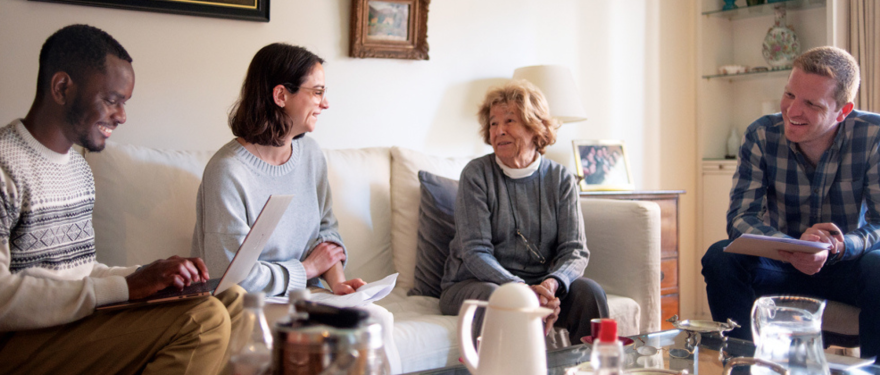The challenge posed to students in HBS’s FIELD Global Immersion (FGI) course sounds a bit like a premise for reality TV: Travel to unfamiliar markets where you might not speak the language, work in teams with students you might not know, and develop critical solutions to a business’s pressing issues—in just eight days. That’s the concept behind FGI, a required course for first-year MBA students. Since 2011, it has become an important learning-in-the-field complement to the case method used in the classroom. This past May, more than 1,000 students in the Class of 2024, divided into faculty-led cohorts of some 70 students each, worked in 15 locations with 171 global business partners to get a firsthand look at how business is conducted around the world.
.jpg)
For the cohort she led, Senior Lecturer Nori Gerardo Lietz taught the case she coauthored, “Doing Business in Buenos Aires, Argentina,” during the classroom portion of the FGI course, which began in March. But even after discussing Argentina’s skyrocketing inflation rate with students, Gerardo Lietz notes that they didn’t fully comprehend how it has affected the economy and consumer behaviors until they were in country. “They were surprised by the extent to which the cultural and economic differences there had an impact on business,” she explains.
Maxwell Nii Laryea and his fellow Class of 2024 teammates Nitzan Israel, Arden Kreeger, Charlie Li, and Dylan Soukup saw the cultural differences while developing marketing concepts for Ellie Care, a technology platform based in Buenos Aires providing health and emergency-response monitoring that enables seniors 65+ to live more independently. Early on, the students learned that in Argentina, the attitudes of young people towards seniors were often negative and that many seniors led very solitary lives. It was an unfamiliar concept to Laryea, a native of Ghana, who explains that seniors in many African countries are more integrated into family life.
The students were tasked with helping the startup expand its primarily word-of-mouth marketing strategies and develop more scalable channels to reach new customers. By increasing Ellie Care’s client base, it would also help the company raise capital.
Working as a team on the project was part of the FGI learning experience. Each person took on a leadership role that played to his or her strength: Laryea’s background is in finance, Israel has technology expertise, Kreeger and Li have nonprofit and consulting experience, and Soukup, a physician, brought knowledge of the health care sector.
While still at HBS, the teammates did preliminary work by visiting a senior center in a Boston suburb to understand how comfortable seniors were with technology. In Buenos Aires, the team used design thinking to identify new marketing ideas and iterate based on the feedback they received from interviews with 21 seniors, 14 of their middle-aged children, and 12 younger relatives. “Our number one recommendation, to break down barriers between younger people and seniors in marketing Ellie Care, came from these conversations,” Laryea says.
The students targeted two audiences: children of seniors, who supervised their parents’ care and finances, and seniors themselves, who had to be comfortable using the Ellie Care platform. For both groups, the overall message was that Ellie Care would provide them with a sense of freedom. For caretaker children, it meant peace of mind that their parents were being monitored, and for the seniors, it made them feel independent and secure.
.jpg)
On the last day of the immersion, the team offered three ideas to heighten awareness of Ellie Care, which were well received by the company’s leadership group: Sponsor special events related to senior care issues (fundraisers for breast cancer or Alzheimer’s), embed information about Ellie Care in every step of the patient journey (at pharmacies, rehab/physical therapy practices, and health care centers), and expand the ambassador program through trusted word-of-mouth channels (senior influencers on social media, and WhatsApp and community groups).
For Laryea, who has worked around the world, the biggest takeaway was the importance of refining one’s global perspective to suit a particular environment. “Being on the ground is critical,” he observes. “Even with my global experience, there was still that level of learning that I needed to have about Argentina before I could add value because individual countries have nuances that necessitate an understanding of local context before one can do business there.”
This article was originally published on the HBS Alumni page.

